Volkswagen Wants To Triple U.S. Sales By 2018

Volkswagen has grand plans for the U.S.A. Volkswagen wants to “increase sales and market share in 2010.” Ok, who doesn’t. Now, for the delusions of grandeur part: By 2018, Volkswagen wants to more than triple annual car sales in the U.S. to 1 million a year, with Audi accounting for 200,000 sales, reports the Wall Street Journal. Seen any flying pigs lately?
Why 2018? By 2018, Volkswagen wants to rule the world, and trounce Toyota in unit sales, profitability, customer satisfaction, innovation, and most likely size and quantity of cup-holders also.
Everybody in the company has to do his or her share for the grand plan.
Jacoby doesn’t have numbers like that, but he has tall predictions.
Jacoby prognosticated that Volkswagen will be profitable in the U.S. in 2013 , when annual sales will be between 450,000 and 400,000 vehicles.
In 2009, VWoA sold 297,537 vehicles in the U.S., down slightly from 313,581 the year before. Considering the bloodletting of other brands, this was a heroic effort. Market share rose to 2.9 percent from 2.4 percent the year before. (If you go back to the WSJ article, you will see different numbers. The WSJ only counts Volkswagen brand sales and forgot about Audi.)
According to the WSJ, “growth in the fiercely competitive U.S. market is crucial for Volkswagen’s long-term expansion plan in coming years.” We beg to differ.
Volkswagen’s lackluster performance in the USA (the highest group sales in the last 10 years were 424,496 units in 2001, and it was steadily downhill from there) cushioned VW from the debilitating effects of the American carmageddon. Toyota on the other hand was hit hard. ToMoCo’s sales dropped to 1,770,147 in 2009 from 2,217,660 in the year before, down a painful 21 percent.
For all of 2009, Volkswagen had been feted as second largest manufacturer in the world. Last November, it was reported that Volkswagen had already passed by Toyota. Toyota demanded a recount, and nosed ahead of VW. We’ll see what OICA will have to say when they release the official 2009 tally.
Depending on how creative everybody gets with their bookkeeping, VW already could be king of the unit hill. They bought 20 percent of Suzuki, and with Suzuki ‘s 2.36m units a year added to VW’s more than 6.2m units, Toyota would be toast by a wide margin.
Unfair? More than a million of the 1.83m Chinese GMs sold in 2009 have been made by the SAIC-GM-Wuling joint venture that specializes in cheap trucks and vans, popular in China’s countryside. GM holds a 34 percent stake in the joint venture, but counts 100 percent of the sales as theirs.

Bertel Schmitt comes back to journalism after taking a 35 year break in advertising and marketing. He ran and owned advertising agencies in Duesseldorf, Germany, and New York City. Volkswagen A.G. was Bertel's most important corporate account. Schmitt's advertising and marketing career touched many corners of the industry with a special focus on automotive products and services. Since 2004, he lives in Japan and China with his wife <a href="http://www.tomokoandbertel.com"> Tomoko </a>. Bertel Schmitt is a founding board member of the <a href="http://www.offshoresuperseries.com"> Offshore Super Series </a>, an American offshore powerboat racing organization. He is co-owner of the racing team Typhoon.
More by Bertel Schmitt
Latest Car Reviews
Read moreLatest Product Reviews
Read moreRecent Comments
- Dave M. IMO this was the last of the solidly built MBs. Yes, they had the environmentally friendly disintegrating wiring harness, but besides that the mechanicals are pretty solid. I just bought my "forever" car (last new daily driver that'll ease me into retirement), but a 2015-16 E Class sedan is on my bucket list for future purchase. Beautiful design....
- Rochester After years of self-driving being in the news, I still don't understand the psychology behind it. Not only don't I want this, but I find the idea absurd.
- Douglas This timeframe of Mercedes has the self-disintegrating engine wiring harness. Not just the W124, but all of them from the early 90's. Only way to properly fix it is to replace it, which I understand to be difficult to find a new one/do it/pay for. Maybe others have actual experience with doing so and can give better hope. On top of that, it's a NH car with "a little bit of rust", which means to about anyone else in the USA it is probably the rustiest W124 they have ever seen. This is probably a $3000 car on a good day.
- Formula m How many Hyundai and Kia’s do not have the original engine block it left the factory with 10yrs prior?
- 1995 SC I will say that year 29 has been a little spendy on my car (Motor Mounts, Injectors and a Supercharger Service since it had to come off for the injectors, ABS Pump and the tool to cycle the valves to bleed the system, Front Calipers, rear pinion seal, transmission service with a new pan that has a drain, a gaggle of capacitors to fix the ride control module and a replacement amplifier for the stereo. Still needs an exhaust manifold gasket. The front end got serviced in year 28. On the plus side blank cassettes are increasingly easy to find so I have a solid collection of 90 minute playlists.



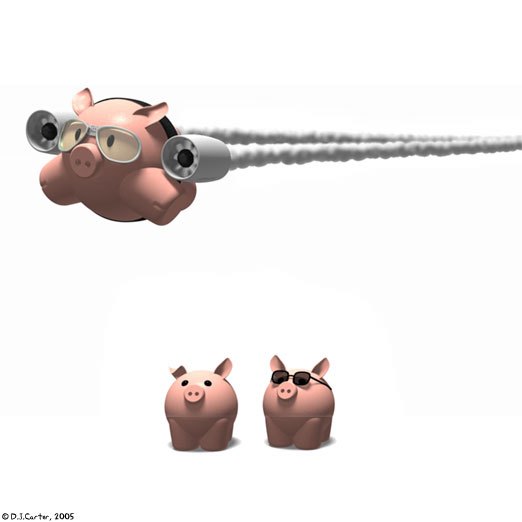















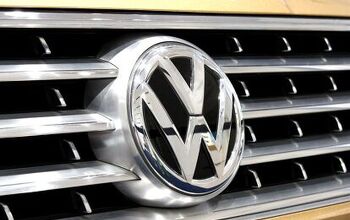
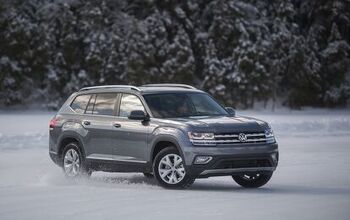
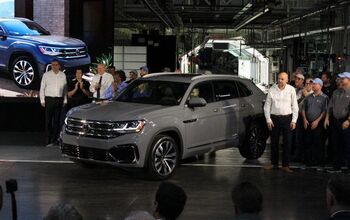
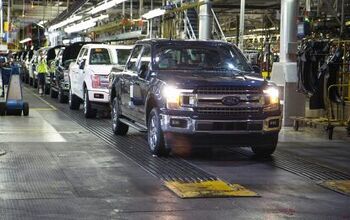











Comments
Join the conversation
On the plus side: VW has a defined goal, and sorta knows what needs to be done to achieve it - and they seem to have bench marked the top competitor, Toyota. On the minus side: The goal is numerical. As Deming used to point out (paraphrasing) why not set the goal 50% higher and the date for achievement 50% sooner? And why didn't they do it 5 years ago? Making up numbers d0esn't get you where you want to be. The goal should be Toyota like reliability (or Honda like) and Toyota like efficiency in production. Add to that, constant improvement. Those three things will lead to more market share and higher profit. On profit: VW is taking advantage of NAFTA. How can they not make a profit with Mexican labor rates? It would seem impossible. On content: If I were running VW, I wouldn't even consider decontenting - not unless Hyudai and Kia are going to do likewise (fat chance). On Price: The base Jetta, for example, is higher than Civic, Focus, Mazda3 or Corolla, but lower than Sentra. I don't know how much difference the price makes to people when most folks finance for at least 5 years - e.g. are the monthly payments excessive because of the higher price? I suppose it has to be decided on a case by case basis. Their sign and drive event, which they have periodically, makes them very price competitive - even a decided advantage. No money down, nothing due at signing. I don't know if they are giving up their profit margin to put cars in driveways, but it's pretty hard to lease any of the competitors for $259/mo, and nothing due. On reliability: True Delta shows the Jetta/Golf/GTI all being green light rides since 2008. The 09 Jetta has 29 trips/year per 100, compared to say, the Civic, with 18 trips/year per 100. But the '08 Civic had 32 trips/year per 100, so an '09 Jetta is bit more reliable than an '08 Civic. IOWs VW doesn't seem too far off from their competitors. Maybe not quite there, but not so far back as many people are making them out to be, and apparently improving.
And "World Leaders" want to cut CO2 emissions by 80% by 2050. And Obama wants the budget balanced by sometime after he's dead. And the UN wants world peace by who knows when. Or at least enough people believing they do, to let them get away with some more Oil for Food like scams again. Or something. Hint to carmakers: Hire people who want to make great cars, and have some possible ability to follow through on those wishes. And fire people who want all kinds of other fluff. Or who don't have the sense to keep such childishness to themselves. Do that for long enough, and sales will take care of itself.